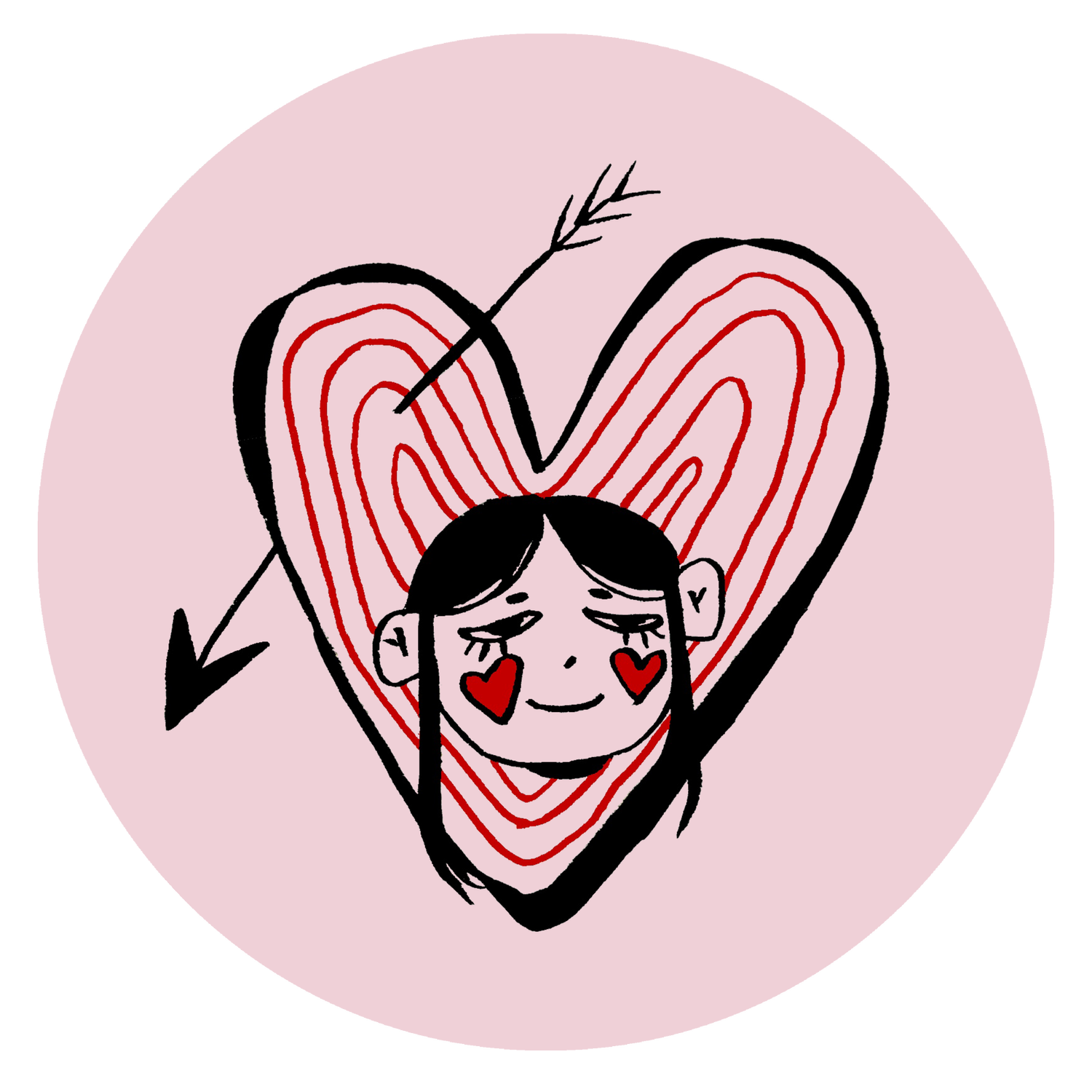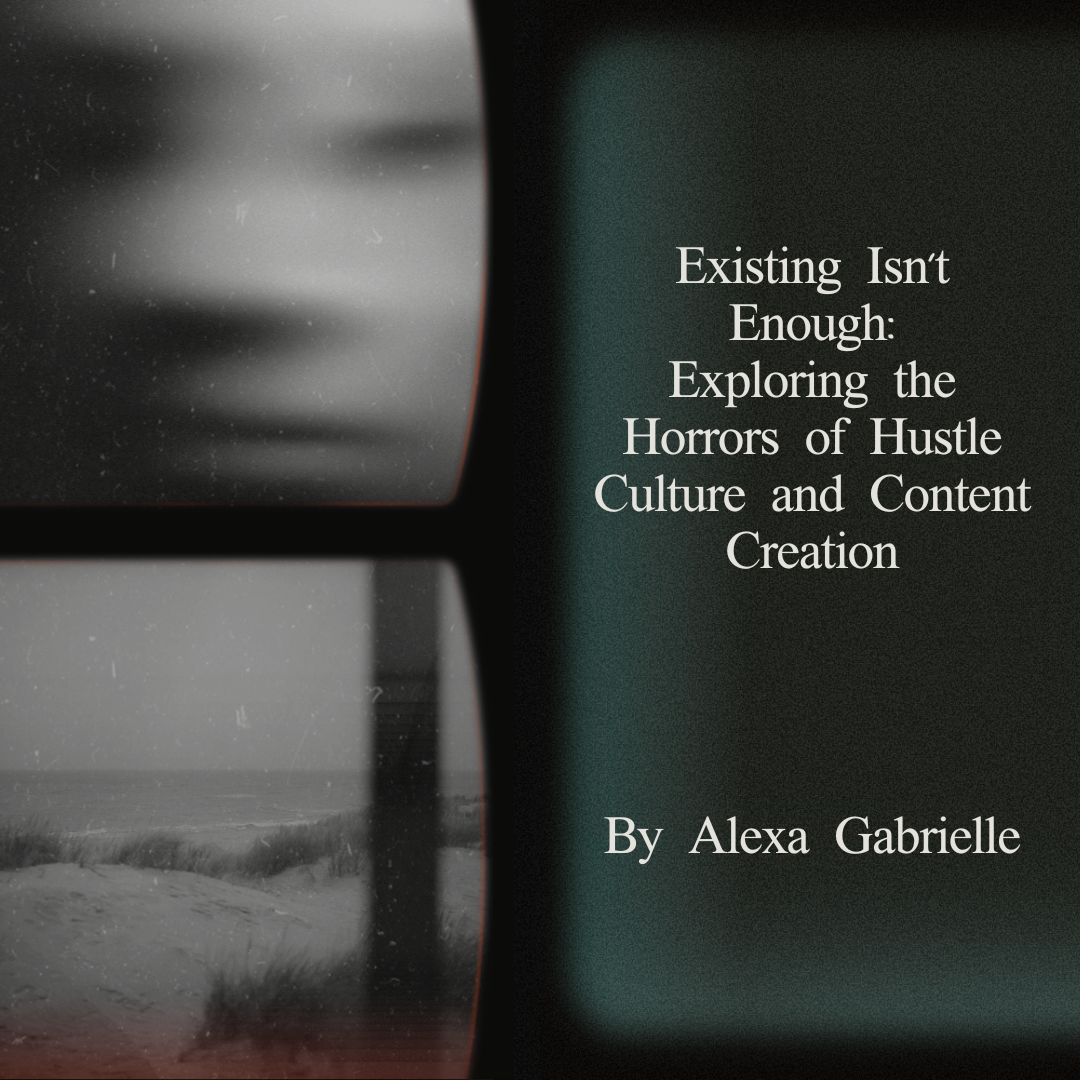Existing Isn't Enough: Exploring the Horrors of Hustle Culture and Content Creation
Graphic by Kadie Qi | @xx.kadie
Amidst the isolation perpetuated by the pandemic and the easy-access to fame through social media, many of us have taken it upon ourselves to create, cultivate, and complete a myriad of projects based on our passions. Whether that be starting an Etsy store, writing music, or vlogging our everyday lives, there is no denying that our generation has gotten accustomed to the idea of constant creation. Though this mindset has given rise to the impressive inception of flourishing businesses and careers for such a young demographic, it has also led to the beginning of a much higher, more toxic standard of success in this current climate, to the detriment of our mental health.
Hustle culture, which centers around the notion that one must constantly work with little to no rest, has been deemed the primary requisite for success in this capitalistic society, enabling young minds to believe they are worthless without work. Thanks mainly to the pandemic and the rise of TikTok, there is this newfound preference to stray away from the traditional, nine-to-five job in favor of something more “exciting” like content creation. Along with this rising distaste for conventional work is an almost animalistic need to share and monetize all aspects of yourself, from your fashion to the city you live in and more. If you are not monetizing yourself and making income through content creation, you must at least be doing something that advances or romanticizes your life. Whether that be journaling, going to the gym, traveling with friends, or attaining a degree, you have to do something — anything, really. Otherwise, you’ll be regarded as a failure in the eyes of fellow Gen Z. And, especially, to yourself.
So many people fail to recognize that this is an issue, convinced that we’re doing right by ourselves. After all, what’s so wrong with being the best person you could be? What’s so wrong with doing and sharing the things you love while making money out of it? There’s a Japanese concept called ikigai referring to an individual’s purpose in life — their “reason for being.” To find it, one must recognize what they love doing, their talents, what the world needs, and what they can be paid for. If you can find something that encompasses all four, congratulations, you’ve found your ikigai. And thanks to the constant exposure to information — one of the key benefits of living in the digital age — we, Gen Z, have found it much easier to do so.
Don’t misunderstand. The problem doesn’t lie in discovering and pursuing your passion. There’s an incomparable solace in finding your reason for being and using it to build a career. If an aspect of your passion is to create content, then so be it. However, the problem lies in creating an environment that doesn’t value rest and shames uncertainty in pursuing such passions. The problem lies in falling mindlessly into constant creation and exposure, but not for yourself: not because it sets your soul on fire, but because it is what’s deemed of us in this capitalistic society. Because, unfortunately, work is as necessary as breathing.
This is why we keep running the marathon, seeking the success and fame that many of our contemporaries have seemingly achieved effortlessly. What’s intriguing, however, is that the moment we inevitably stop, we realize that we’re not running toward something but rather from something. When our minds and bodies eventually falter, burnt out from the ceaseless grind, we start feeling unbelievably guilty — as if we hadn’t suffered countless nights measuring our worth, thinking of ways to be better than we already are.
Because, as much as the poets remind us, we never truly believe them when they say that simply existing is enough.
Such is precisely why many young people today find the hustle as a form of escape from the overwhelming feelings of worthlessness, depression, and anxiety that can easily manifest. The truth is that most of us are lost, tethered between the simpler past and the challenging future. And, in this culture, to be lost is to be worthless.
It’s heartbreaking, this pressure we put on ourselves and the pressure placed on us. People tell me, “Don’t compare yourself to others,” as if that’s a novel sentiment. As if I haven’t consciously tried to do so every single day. As if they themselves didn’t just compare me to some TikToker who’d retired by twenty-five because they started their multi-million dollar beauty brand at eighteen. I can’t forget this tweet where someone uploaded pictures of “The Rape of Prosperina,” an amazingly intricate sculpture by then-23-year-old Gian Lorenzo Bernini in 1622, captioned “A 23-year-old sculpted this. What’s your excuse?”
This culture of hustle and self-monetization is by no means new, as capitalism has and will fervently continue to persist in our society. Still, it’s taken a vastly different meaning in the digital era, even comically becoming a form of escape for many of us. And much like the permanence of European Baroque art and pretentious, cringe-worthy tweets, hustle culture is here to stay. It’s becoming one of our generation’s most empowering and destructive legacies.
I want to think that it is only a matter of time before we all collectively run out of things to monetize and give up for the sake of content and supposed success. Yes, work is necessary to survive, but you know what? So is rest. And besides, there’s more to life than just surviving. We cannot keep running and expect ourselves not to crash and burn. Perhaps we will eventually stop and realize that we must create for ourselves — simply because it’s our ikigai — our reason for being, not because of the demands of social media or the capitalistic society we feel the need to satisfy.
That maybe, just maybe, existing in this world is already enough.
More than enough.

